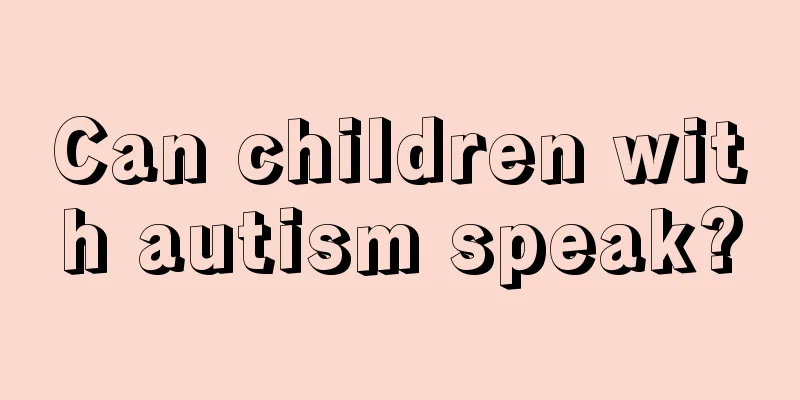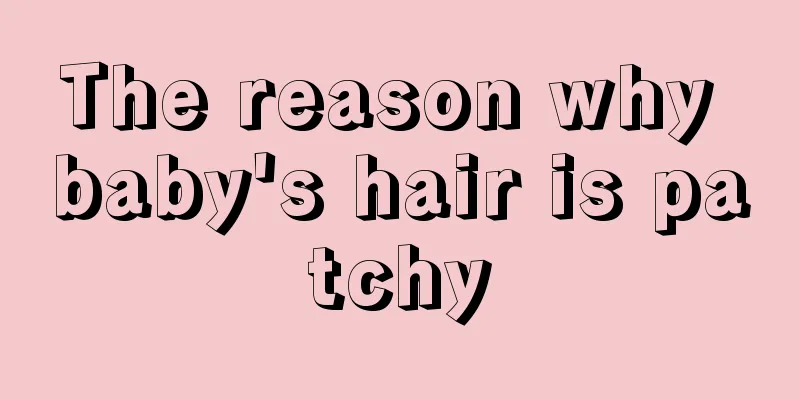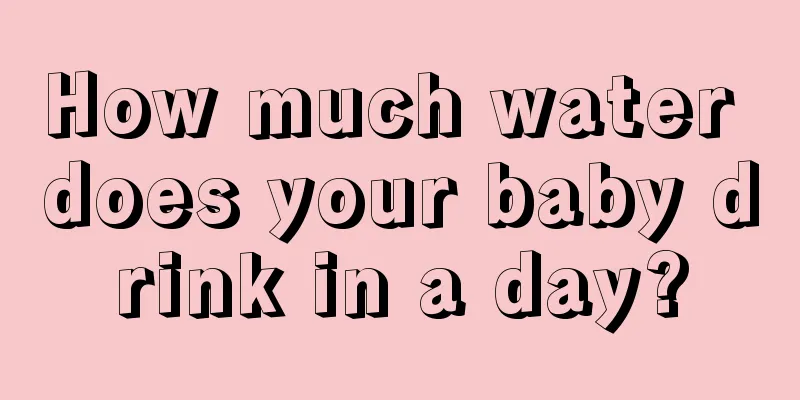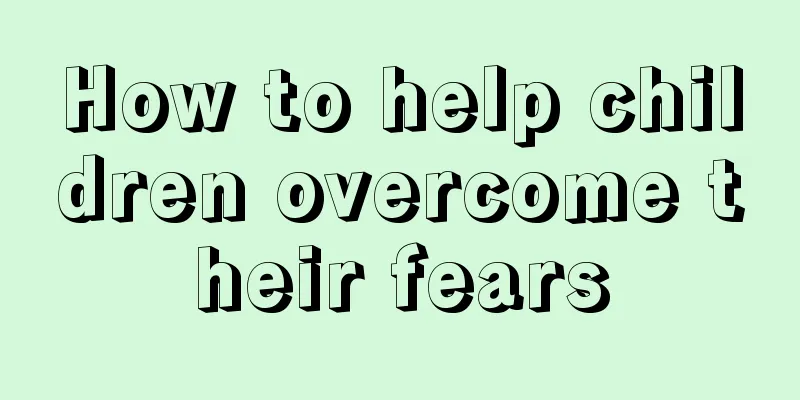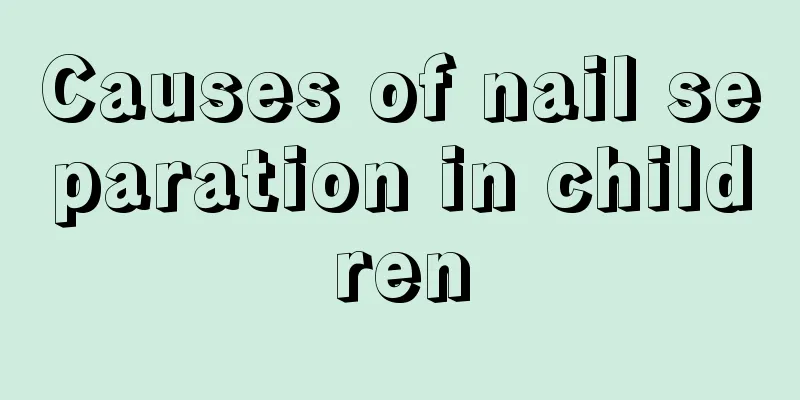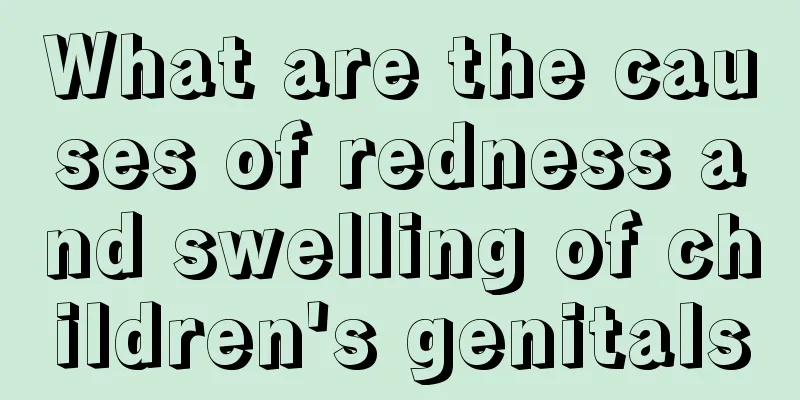What diseases are related to babies' constant coughing

|
When a baby keeps coughing, parents will be very worried about their health. The baby's constant cough is mostly related to colds, which is a common feature of colds. However, parents should also observe the baby's other symptoms. There are many diseases that cause babies to cough constantly. Don't limit yourself to one disease. So what diseases are related to babies' constant coughing? There are many diseases related to this symptom. This article introduces some of the most common diseases that cause constant coughing. 1. Common cold A direct cough can produce mucus without wheezing or difficulty breathing. In addition to causing a cough, the common cold is also accompanied by other common cold symptoms: runny nose, sneezing, watery eyes and a mild fever. The cough caused by the common cold usually persists throughout the cold and will not improve or worsen significantly until other cold symptoms disappear. Children's colds and coughs are mostly caused by cold, trachea or lung infection, and eating too cold food can also cause coughing. For children's colds and coughs, proper diet adjustment can often achieve twice the result with half the effort. 2. Acute bronchitis Cough occurs 3-4 days after upper respiratory tract infection. It is dry cough at first and then produces sputum. The main cause of the disease is viruses, and patients often experience fever, vomiting, and diarrhea followed by coughing. There is often mucus in the vomit, and the systemic symptoms are generally not obvious. Symptoms usually resolve within three weeks; if cough persists beyond this period, a secondary infection such as pneumonia should be suspected. Since most pathogens are viruses, antibiotics are generally not used. It is advisable to change body positions frequently, drink plenty of water, and humidify the airways appropriately to make respiratory secretions easier to cough up. 3. Bronchiolitis Persistent dry cough with paroxysmal wheezing. Bronchiolitis is an infection of the small airways in the lungs and is very common in infants and young children. Infants and young children infected with RSV are particularly vulnerable. The initial symptoms are quite similar to those of a common cold. After about 2-4 days, the secretions in the trachea increase, causing the trachea to become narrower. Coughing, difficulty breathing, obvious depressions between the ribs when inhaling, or wheezing when exhaling will occur. The number of breaths will also increase, and some of the symptoms are similar to those of asthma, making it difficult to fall asleep at night. After 3-5 days, the wheezing sound when exhaling and shortness of breath will gradually improve, but the symptoms of nasal congestion and cough will continue for about one to two weeks. In the early stages, parents should encourage their children to drink more water or fruit juice to replenish lost water and prevent secretions from being too viscous. Before eating or going to bed, the secretions in the baby's nose should be cleaned. When sleeping, the baby's head can be raised with a pillow to make the nasal cavity less likely to be blocked. 4. Pneumonia Cough is accompanied by fever, shortness of breath and even difficulty breathing. Pneumonia in children is a common clinical disease that occurs in all seasons, but most often in winter and spring. If the treatment is not thorough, the disease is likely to recur and affect the child's development. The clinical manifestations of pneumonia in children include fever, cough, and dyspnea. Some children may not have fever but have severe cough and asthma. Newborns, especially immature children, have poor reaction ability and atypical symptoms when they have pneumonia. They do not have fever or cough, and their body temperature is normal or below normal. Therefore, adults often tend to ignore neonatal pneumonia, which leads to adverse consequences. At the same time, the children may have systemic symptoms such as mental depression, irritability, loss of appetite, diarrhea, etc. It can easily cause vomiting and diarrhea in infants and young children. Most cases have a high fever, which may last from two to three days to about a week. As long as childhood pneumonia is discovered in time and treated effectively, the child can recover quickly. The key to preventing pneumonia in children is to strengthen physical exercise and treat colds and bronchitis in a timely manner. Children should usually go outdoors for activities, get more sun, and keep the indoor air fresh and flowing. During epidemic seasons, do not take children to public places, do not let children come into contact with infected children and adults, and add or remove clothes for children as appropriate when the weather changes. Babies' constant coughing is related to the above-mentioned diseases. Babies' resistance is lower than that of adults, and they will have more symptoms after becoming sick. If not treated in time, the disease will progress very quickly. Therefore, it is important to detect the disease as soon as possible and find the adverse factors that cause the disease to prevent it from happening again in the future. When a baby keeps coughing, you should stop the cough first, then relieve the cough through relevant treatment to achieve the goal of curing the cough. At the same time, you should observe whether the body has other discomforts and refer to treatment at the same time. |
<<: Can babies be bathed and washed every day?
>>: How to deal with baby’s fever caused by bacteria?
Recommend
Eight-month-old baby has blood in his poop
Don't think that only adults will have sympto...
How tall is a seven month old baby?
Babies are the greatest source of happiness for a...
What should I do if my child always has a hunchback?
For parents, the healthy growth of children is of...
The child complains of stomachache after eating
Many children have been picky eaters since childh...
When do the baby teeth grow?
We have two sets of teeth throughout our lifetime...
What foods are good for children with anemia?
Many parents take their children very seriously, ...
Why do children have yellow teeth?
Because children are not like adults. They are in...
Why does the child sweat a lot on his head?
Sweating is a normal and common phenomenon in our...
How to tell if your baby is hot or cold?
Most parents do not know how to dress their newbo...
What to do if your baby has recurrent enteritis
If the baby has recurrent enteritis, parents must...
Early symptoms of intestinal necrosis in children
When children fall ill, adults are always very wo...
At what age is it better to have hernia surgery for children?
Hernia problems in children generally require spe...
Causes of allergic dermatitis in children
When it comes to diseases like dermatitis, many p...
Treatment of fever in six-month-old babies
Many of us are particularly susceptible to colds....
What to do if your child has a cough, phlegm, and runny nose?
Children's coughing, phlegm and runny nose ar...


